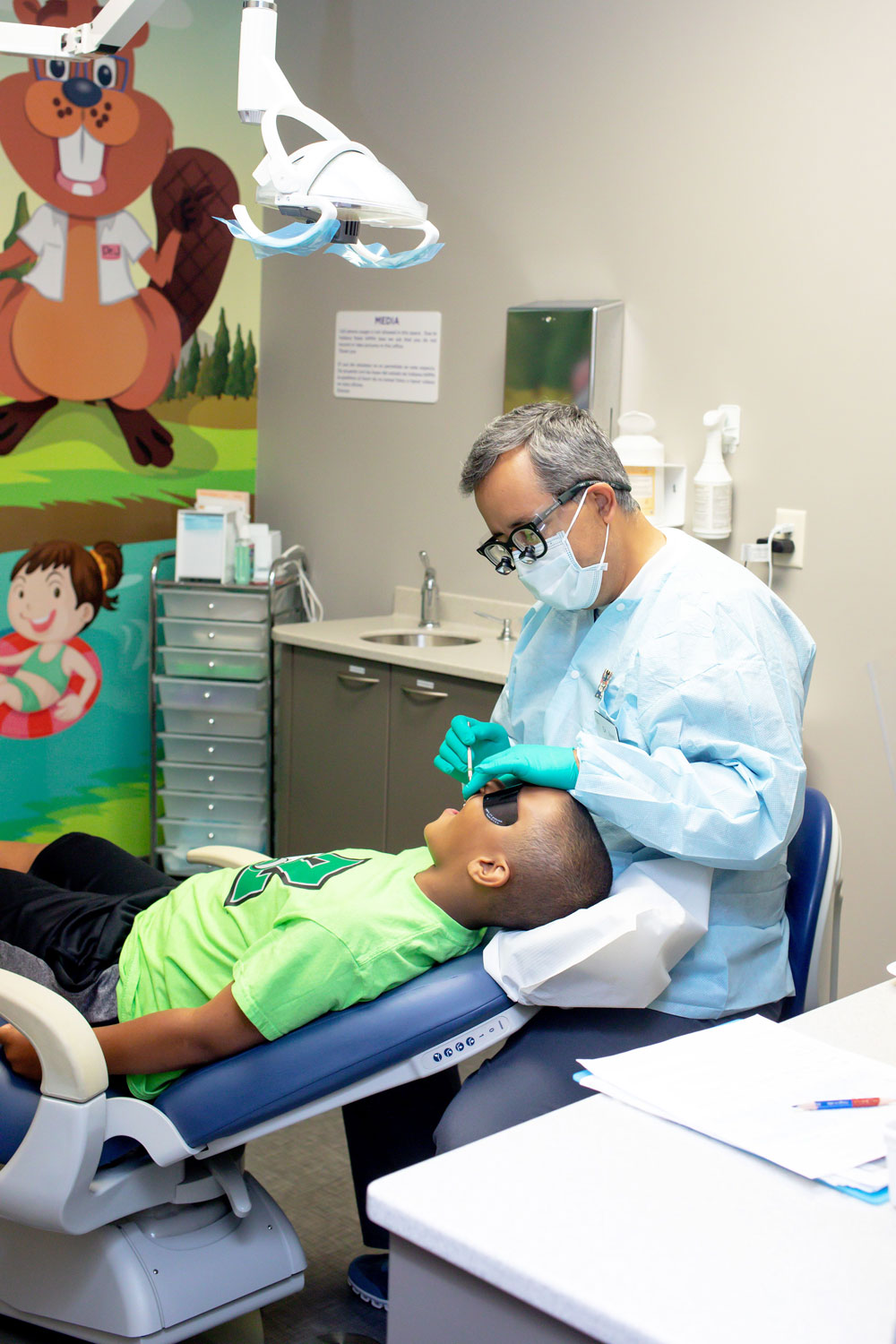Local Children Dentist Near Me for Specialist Pediatric Dentistry
Local Children Dentist Near Me for Specialist Pediatric Dentistry
Blog Article
Pediatric Dental Emergencies: What Moms And Dads Required to Know for Quick and Effective Treatment
In the world of pediatric healthcare, dental emergency situations can emerge unexpectedly, leaving moms and dads unclear of just how to take care of the circumstance successfully. Understanding the signs, types of injuries, and immediate activities to take can make a considerable difference in the outcome for a child's oral health and wellness. With a fast and appropriate response, parents can reduce prospective lasting consequences and guarantee their child receives the required care quickly. By being prepared and educated, moms and dads can play an important role in guarding their child's oral well-being.
Signs of Pediatric Dental Emergencies
When analyzing pediatric dental emergency situations, it is vital for moms and dads to be watchful for details indications suggesting prospective significant problems. Among the main indications of an oral emergency situation in kids is consistent tooth discomfort that is not alleviated by over the counter discomfort medications. This might indicate an underlying infection or damages that calls for prompt interest from a dental practitioner. Swelling in the gum tissues, face, or jaw location is an additional warning that should not be neglected, as maybe a sign of an abscess or various other significant dental condition.

Typical Kinds Of Oral Injuries
Typical types of dental injuries in kids typically result from accidents or sports-related activities that can bring about various types of injury to the mouth and teeth. One usual oral injury is a broken tooth, which can range from a small chip to a more serious break including the inner layers of the tooth. Another frequent injury is a knocked-out tooth, where prompt action is crucial to increase the possibilities of conserving the tooth. Kids might likewise experience oral injuries like tooth invasion, where the tooth is pushed right into the jawbone, or avulsion, which is the full displacement of a tooth from its socket. Furthermore, oral injuries can consist of luxation, where the tooth is removed yet not totally knocked out, or soft tissue injuries to the gums, lips, or tongue. It is important for moms and dads to be aware of these common kinds of oral injuries to offer prompt and proper care in case of emergencies.
Immediate First Help Measures
Upon blog here encountering a pediatric oral emergency, swift and appropriate first aid procedures are crucial to reduce discomfort and avoid more difficulties. For a knocked-out tooth, advise the child to gently rinse the tooth with water, trying not to touch the root, and area it back in the outlet when possible. If re-implantation is not practical, store the tooth in a container of milk or the kid's saliva up until reaching the dentist. In cases of a broken or damaged tooth, wash the mouth with warm water and apply a cool compress to reduce swelling. A bitten lip or tongue should be cleaned up delicately with water, and a cold compress can help minimize pain and lower swelling. For items stuck between teeth, avoid making use of sharp devices and instead encourage the youngster to delicately floss to remove the product. In find out all instances, it is vital to contact a pediatric dental professional without delay for additional evaluation and therapy.
When to Seek Specialist Help
Seeking timely oral care from a pediatric expert is imperative in addressing prospective complications emerging from pediatric dental emergency situations. Moms and dads need to look for specialist help right away if their kid experiences serious tooth pain, facial swelling, bleeding that doesn't quit, a knocked-out irreversible tooth, or any type of trauma to the mouth or face. These indications show a serious dental issue that needs immediate focus from a pediatric dental professional.
In addition, if a child experiences consistent tooth level of sensitivity to hot or cool, problem eating or swallowing, or signs of infection such as pus around the gum tissues, parents should not delay in looking for specialist oral treatment. These signs might show underlying dental problems that need to be addressed immediately to stop further difficulties.
In instances of oral emergencies, it is vital for moms and dads to contact a pediatric dental practitioner as soon as feasible to ensure proper diagnosis and therapy - kid dentist oakland. Delaying expert aid can bring about exacerbated dental concerns and long term discomfort for the kid

Avoiding Future Oral Emergencies
To minimize the chance of future oral emergency situations, moms and dads need to focus on consistent oral health practices and routine check outs general dentist near me to a pediatric dental expert for preventative treatment. Motivating youngsters to brush their teeth two times a day with fluoride toothpaste and showing them the proper strategy for 2 minutes each time can dramatically lower the risk of oral issues. Flossing daily is also essential to eliminate plaque and food bits in between teeth, where a toothbrush can not get to. Furthermore, limiting sweet snacks and beverages can help avoid tooth decay and dental caries.
Regular check outs to a pediatric dentist for check-ups and cleansings are vital for very early detection of any kind of prospective dental problems. These visits permit the dental professional to keep an eye on the kid's oral health and wellness, supply professional cleanings to eliminate plaque and tartar build-up, use fluoride therapies for included protection, and offer support on appropriate oral care strategies.
Verdict
Finally, moms and dads should understand the indicators of pediatric dental emergencies, usual kinds of dental injuries, prompt very first help procedures, and when to look for expert assistance. By taking aggressive steps to stop future oral emergencies, parents can make sure quick and effective therapy for their youngsters. It is essential to remain informed and prepared in order to handle any type of dental emergency that may arise.
Report this page